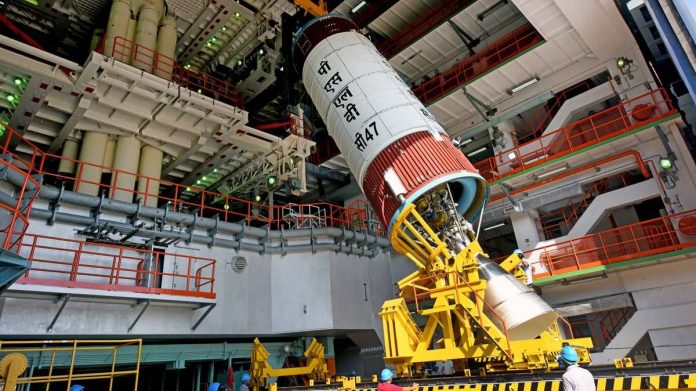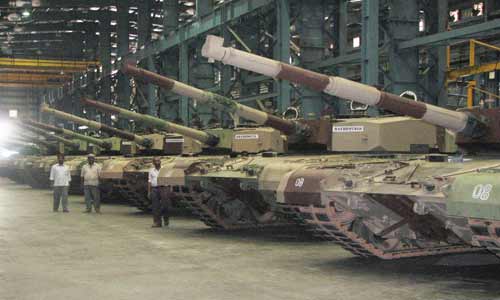IDD Bureau
India has opened up its space programme for private entities to produce components and sub-systems for space craft besides create space based applications using satellite data and also roll out of commercial services.
This is a first as the Indian Space Programme, so far, is administered by the Department of Space, which in turn is directly under the Prime Minister, the top-most elected executive. The Indian Space Research Organisation (ISRO) is the operational arm involved in research of cutting edge technologies and launching satellites.
Under the latest instructions issued July 29, Government of India has incorporated New Space India Limited (NSIL), a wholly owned Central Public Sector Enterprise (CPSE), under the administrative control of Department of Space. Read it here
“It is proposed to change the approach from ‘supply based model’ to ‘demand based model’. The NSIL will act as aggregator of user requirements and obtain commitments”.
Government of India
The move has been necessitated as emerging trends in space sector in India, has many private industries, including start-ups and industries which can make launch vehicles and satellites and are eager to provide space based services.
A National level nodal agency called the Indian National Space Promotion and Authorization Center (IN-SPACe) has been set up. This will permit, monitor and supervise space activities by private entities and accord necessary permissions as per the regulatory provisions, exemptions and statutory guidelines.
This agency under Department of Space will grant usage of Government owned facilities and will prioritize the ‘launch manifest.
The Following is the list of work allowed for private entities
- Production of components and subsystems of a launch vehicle, launch vehicle integration and testing which is meant for space launch
- Production of components of a spacecraft, spacecraft Integration and testing for the purpose of space launch.
- Launch of spacecraft from on board a launch vehicle and establishment operation of launch infrastructure.
- Providing space based services including operation, control and station keeping of spacecraft by establishing and operation of ground segment/ stations.
- Development of space based applications using satellite data and rolling out of commercial services.
ISRO success
Over the last five decades, ISRO has been successful in the development of indigenous end-to-end capability in space technology and space activities.
This has also led to the growth in Indian industries, with more than 500 Medium and Small Enterprises (MSME) and large private industries have contributed significantly to the Indian space programme.
“Industries have matured in the field of motor cases, engines, satellite production and rocket motor realization to the level of exporting indigenous technologies” said ISRO.
The involvement of industries created jobs for around 45,000 people in the country. Many sectors like defence production, telecom, materials, chemicals and precision engineering have benefitted from the spin offs.

Participation of NGPEs including academic institutions, start-ups and industries in end-to-end space activities is expected to expand the space economy, the ISRO said.
ISRO has earned about Rs 1,245 crore (approx $175 million) in the last five years ( 2014-2019) by launching satellites of 26 countries, The Union Minister of State for Atomic Energy and Space Jitendra Singh told Parliament at end of 2019 ( read it here)
In these five years India worked with 10 countries — USA, United Kingdom, Germany, Canada, Singapore, The Netherlands, Japan, Malaysia, Algeria and France — were signed in the last five years under commercial arrangements.
As many as 284 commercial satellites have been launched by India since 2014. ISRO has until now launched a total of 319 commercial satellites of 33 countries — 233 of them came from the USA alone. The first commercial launches were Germany’s DLR-Tubsat and South Korea’s Kitsat-3 in 1999
Space for national development
The Indian Space programme is characterized by a vision to use space technology for national development. The primary objective of the space programme is to establish operational space services in a self-reliant manner in the thrust areas of satellite communication, satellite-based resource survey or management, satellite navigation, satellite meteorological applications and other emerging areas and to carry out sustained research and development in these areas. Read it here
Being a Scientific & Technological organization the ISRO follows a functional matrix structure, in which all its centres and units contribute to the different space programme verticals according to their core competence.
Reforms
ISRO shall complement the Department of Space in its objective of opening up the space sector to private industries. In this regard, the a slew of reforms are proposed.
The NSIL to take ownership from DOS for operational launch vehicles, commercialize launches, satellites and services. ISRO will carry out capacity building in Space domain through development of new technologies and capabilities and enable sharing of facilities with private entities.
Private entities will be offered challenges in new domains of technology.
IN-SPACe will regulate and allow space activities and usage of DOS owned facilities by NGPEs as well as to prioritise the launch manifest.
A mechanism
A suitable mechanism will be worked out for promotion & hand holding, sharing of technology and expertise.
Space activities require extensive infrastructure and facilities for carrying out research and development, integration and testing, space launch, satellite operations and control as well as rolling out space based services. These are capital intensive and takes time to establish. These facilities are already established and functional in ISRO. A mechanism is to be created for sharing of capital intensive facilities and premises with private entities.
In order to encourage and promote NGPEs in space activities, the technology, expertise and facilities will be offered free of cost wherever feasible or at reasonable cost.
























Recent Comments